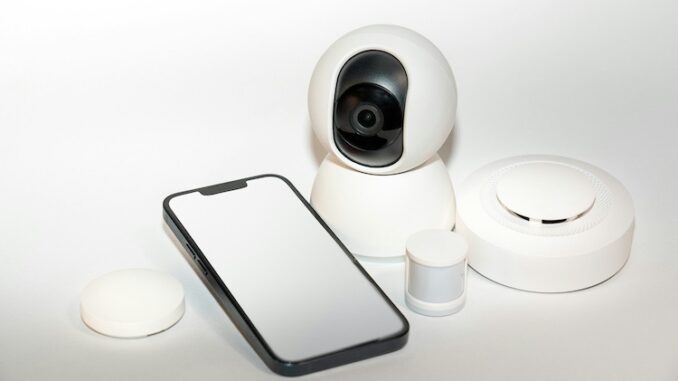
For those weighing the decision, professional IP camera systems, despite their higher cost, present several compelling advantages over consumer-level cameras, writes Alarm Watch’s Technical Manager Graeme McKenzie.
When it comes to choosing between DIY and professional CCTV systems, the difference in price is often quite noticeable. This disparity can be attributed to several key factors that distinguish the two types of systems.
One of the primary distinctions is image quality. Professional systems typically offer cameras with higher megapixels, starting at 4 MP, which provide superior clarity, especially in low-light conditions. Cameras ranging from 4 MP to 8 MP are commonly used in these systems. In contrast, consumer systems usually begin at 1080p (2 MP), which may suffice for viewing on mobile devices but falls short on larger screens or when detailed imagery is needed as evidence.
Some consumer cameras claim to offer 4K resolution, which might sound impressive. However, it’s essential to understand what this means.
A 4K resolution translates to approximately 3840 x 2160 pixels. This equates to about 8.3 megapixels (MP), as 1 megapixel is 1 million pixels. While this higher resolution provides clearer and more detailed images compared to lower resolutions, it’s important to remember that the overall image quality also depends on other factors like the camera sensor quality and lens.
“For those weighing the decision, professional IP camera systems, despite their higher cost, present several compelling advantages over consumer-level cameras.”
Camera technology also sets these systems apart. Professional setups utilise advanced chipsets, ensuring better processing, analytics, and adaptation to changing light conditions. Some even deliver full-colour images at night. Meanwhile, consumer cameras often rely on less sophisticated or outdated processors, which can impact recording quality and analytical capabilities.
The way these systems handle storage and subscriptions adds another layer of difference. Professional systems record locally to a hard drive on the client’s premises, meaning they don’t require internet access for recording or playback. This contrasts with consumer systems, which frequently use subscription models for accessing recordings and depend on the client’s internet connection for cloud storage and recording.
The reliability of the connection is another consideration. Professional CCTV systems are typically fully wired, eliminating the concerns associated with wireless systems, such as battery life and Wi-Fi signal strength.
The temptation of wireless and rechargeable batteries in consumer systems is strong due to the ease of installation, but they often become problematic. Batteries can go flat too often, requiring regular replacements or recharging, and wireless cameras are more susceptible to theft as their mounting brackets can be easily removed.
Installation costs further highlight the differences. Consumer systems are generally cheaper to install, particularly with battery-powered Wi-Fi cameras, while professional installations can be more costly and time-consuming.
However, professional systems offer greater flexibility with non-proprietary components, allowing interchangeability between cameras from different manufacturers. This flexibility is often lacking in consumer systems, which may have proprietary cameras that limit compatibility and upgrade options.
Warranties also play a crucial role. Professional systems typically come with both parts warranties from the manufacturer and installation warranties from the installation company, providing additional peace of mind. They also offer superior cybersecurity features to prevent unauthorised access, a critical aspect often overlooked in consumer-level systems.
For those weighing the decision, professional IP camera systems, despite their higher cost, present several compelling advantages over consumer-level cameras.
The quality and reliability of professional systems ensure they operate trouble-free for extended periods, unlike consumer cameras that often need frequent replacements. Additionally, professional systems provide robust protection against hacking and malware, offering a higher level of security.
Professional IP camera systems are designed to handle video recording from a large number of networked cameras, boasting better capacity, bandwidth, and tracking capabilities compared to consumer systems. They also feature advanced functionalities, such as intelligent video capabilities and superior image quality, that are not typically found in consumer cameras.
Integration is another strength of professional systems. They can seamlessly incorporate other security measures, enhancing overall security protocols. Unlike consumer cameras, which are generally only viewable by the end user, professional systems can be connected to monitoring stations for comprehensive security management.
Finally, professional IP camera systems are tailored to meet the demands of both domestic and commercial applications.
They are ideal for businesses, schools, hospitals, government facilities, and other commercial organisations. While consumer IP cameras are affordable, they simply do not meet the rigorous requirements of these environments, making professional systems the better choice for those seeking reliable and high-quality security solutions.








